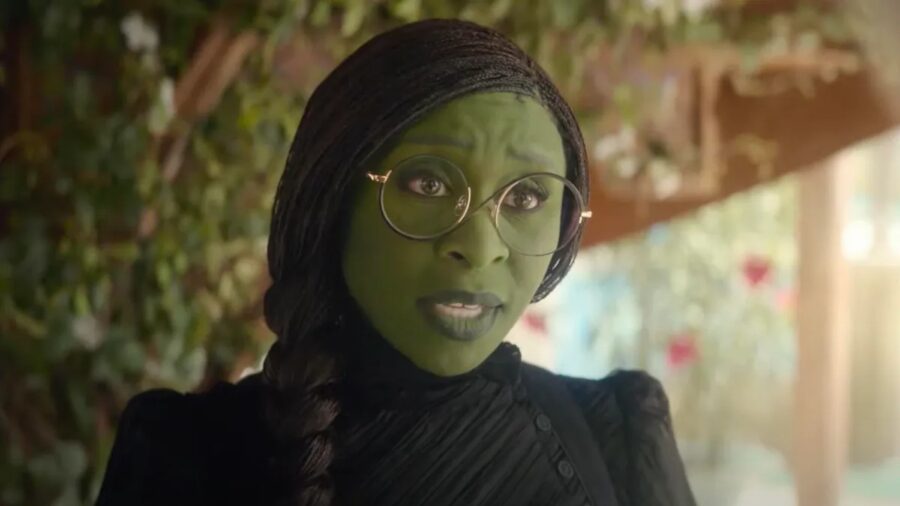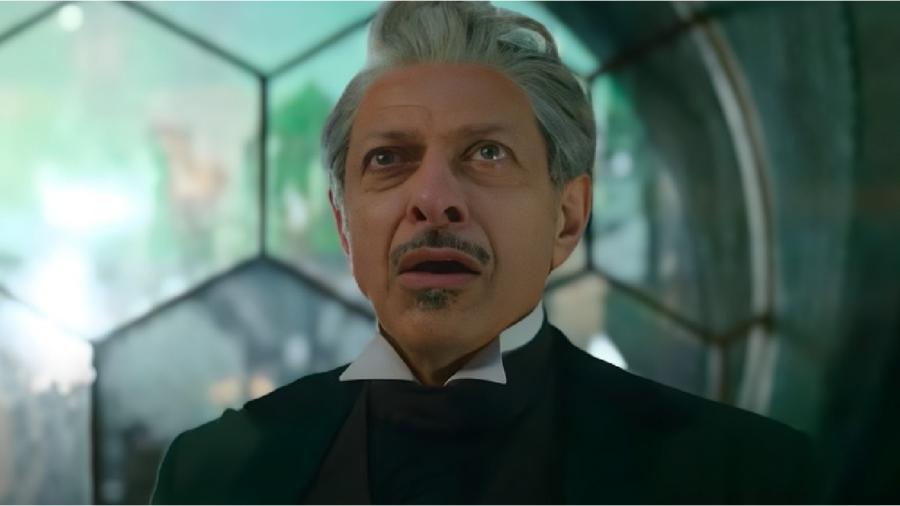Wicked Reveals Book And Stage Adaptation Influences

Part 1 of the Wicked movie will be released on Thanksgiving 2024, with Part 2 arriving a year later, next Thanksgiving. Though we can’t know much beyond what the trailer reveals, it looks like the screenwriter and director are paying homage to both Gregory Maguire’s book and the Broadway musical that took over the world.
My sister insisted we go see Wicked the Musical when it came into town, so, of course, I picked up the book first. But before I had a chance to read it, I mentioned my plan to a friend, “See the play first,” she advised me.
She cautioned me that the book and the musical were wildly different, and that if I read the book first, I might not enjoy the play. Now, I’m noticing influences from both in the Wicked movie trailer.
Gregory Maguire’s 1995 book Wicked: The Life and Times of the Wicked Witch of the West is dark, political, brutal, and violent. In it, a little girl, Elphaba, grows up an outcast in her family and her town, Munchkinland, both because she is a child of rape and because she has green skin. Her sister, Nessarose, who is born without arms, becomes the much-beloved child of the family.
When Elphaba finally escapes her household to attend university, she meets Galinda, her polar opposite. The Wicked musical and, it looks like, the Wicked movie focus intensely on this relationship.
Gregory Maguire’s 1995 book Wicked: The Life and Times of the Wicked Witch of the West is dark, political, brutal, and violent.
In the book, the relationship between Elphaba and Galinda is just another part of a story primarily centered around the issue of evil. Maguire asks us to visit the nature versus nurture stories we have in our heads. If you’re told you’re bad, evil, and wicked your whole life, how could you possibly become anything else?
…the trailer for the Wicked movie looks to mostly follow the musical, even including songs like “Popular” and “Defying Gravity.”
Elphaba’s character in the novel is smart, sharp, and deeply loving when it comes to her friends, family, and even the creatures of the earth. Sure, she becomes a revolutionary who fights for freedom, but she’s always working to do what’s right. Even her death is the result of a terrible misunderstanding.

But in the musical, and now, the Wicked movie, the plot seems to revolve more around the ideas of good and evil as embodied by Elphaba and Galinda. In the film, Elphaba is played by breakout star Cynthia Erivo. She’s dark green, mysterious, and oh-so-serious. Galinda, played by Ariana Grande, in stark contrast, is white, with platinum blonde hair, dressed all in glittery pink, and she’s bubbly and a bit air-headed.
It appears as though the film is taking notes from the serious tones of the book for Elphaba and taking away some of the mean girl behavior we see from Galinda’s novel version. Instead, we’re chalking it up to her being a bit of an idiot.
But in the musical, and now, the Wicked movie, the plot seems to revolve more around the ideas of good and evil as embodied by Elphaba and Galinda.
As far as the wizard and Madame Morrible go, played by Jeff Goldblum and Michelle Yeoh, respectively, their roles play out pretty much in the same way in both the book and the musical, so it will come as no surprise to see them follow suit for the Wicked movie. The wizard is a man grasping for power, and Madame Morrible hopes to ride his coattails. Elphaba is a perfect scapegoat for them both.

Her classmates are already suspicious of her, and her pride will not let her kowtow to the establishment, so, like all strong women who reject the status quo, she’s labeled a “wicked witch.”
Again, the trailer for the Wicked movie looks to mostly follow the musical, even including songs like “Popular” and “Defying Gravity.” We’ll likely see a heavy focus on a relationship between the girls with only light political leanings to propel the plot forward. But it would be nice to see a heavier emphasis on issues of power, control, and propaganda as they are addressed in Maguire’s novel. Here’s hoping those involved with the film manage to strike the right balance that pays homage to both.












